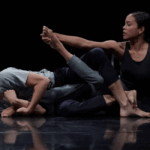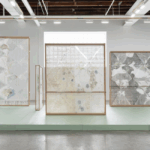Lancé l’an dernier par French Morning, le Salon de l’Education bilingue (Bilingual Fair) avait attiré quelque 800 visiteurs. Il est de retour ce samedi 3 octobre à New York, toujours à Hunter College, en plus grand, plus fort, plus beau.
Plus de 80 écoles, éditeurs et autres spécialistes (représentant 12 langues) ont répondu à l’appel et seront là pour présenter leur offre et surtout répondre aux questions des parents intéressés par l’éducation bilingue.
Parallèlement, neuf conférences et présentations permettront d’écouter et de dialoguer avec des spécialistes de divers aspects du bilinguisme (programme ci-dessous, en anglais).
La Bilingual Fair étant un évènement familial, une multitude d’activités (autour des langues bien-sûr) sont prévues pour les enfants avec « garde » gratuite (pour les plus de deux ans, les plus jeunes peuvent participer mais accompagnés d’un parent).
Le but est toujours le même: comme nous l’avons fait avec notre Guide de l’Education Bilingue à New York, il s’agit de vous aider à naviguer ces eaux parfois difficiles, du choix d’une école à la bonne stratégie à adopter à la maison pour s’assurer que votre cher ange sera un bilingue enthousiaste.
Le programme des conférences:
9:30AM- 10:15AM. Dual Language Programs: A Presentation by NYC Department of Education (Ircania Stylianou)
 This workshop will focus on increasing parents’ understanding of the goals and benefits of Dual Language programs. Participants will learn about the different dual language program models in New York City.
This workshop will focus on increasing parents’ understanding of the goals and benefits of Dual Language programs. Participants will learn about the different dual language program models in New York City.
10:15AM-11:15AM. Dual Language Programs: Parents & Community Power
A discussion on how parents and the community can help create and support bilingual education in public schools. Moderated by Fabrice Jaumont from the French Embassy.

10:15AM- 11:100AM. Understanding Early Language Acquisition
 A pioneer in Early Language Acquisition, Francois Thibaut will explain how babies and toddlers can learn a “second language” thanks to a whole language approach employing both sides of the brain.
A pioneer in Early Language Acquisition, Francois Thibaut will explain how babies and toddlers can learn a “second language” thanks to a whole language approach employing both sides of the brain.
11:15AM-12:15PM. A Revolution: How Technology Is Changing Language Learning.
 Digital technology is changing what it means to learn and know a language today. The internet and digital tools provides language learners access a range of programs and resources, facilitating not only the acquisition of grammatical rules but also access to authentic texts as well as more advanced speakers of the language.
Digital technology is changing what it means to learn and know a language today. The internet and digital tools provides language learners access a range of programs and resources, facilitating not only the acquisition of grammatical rules but also access to authentic texts as well as more advanced speakers of the language.
11:15AM- 12:15PM. Italian: How Bilingual Education Can Reconnect Italian-Americans To Their Roots

The aim of the workshop is to help the families who are willing to enroll their children in an Italian Dual Language class and help them discover the great contribution given by Italian to the development of the western culture.
2:00PM – 2:45PM. The Brain, Visuals, Speech and making your child trilingual.
 Linguist and author of QTalk, Maurice Hazan will demonstrate techniques to implement principles of semantic memory at home and in the classroom. Anyone who believes visuals can be useful to teach 1,2, or 3 languages will first hand experience Hazan’s method by learning Japanese in this short session.
Linguist and author of QTalk, Maurice Hazan will demonstrate techniques to implement principles of semantic memory at home and in the classroom. Anyone who believes visuals can be useful to teach 1,2, or 3 languages will first hand experience Hazan’s method by learning Japanese in this short session.
2:00PM – 3:00 PM. Learning Difficulties and Bilingual Education: Twice exceptional students.
 This workshop provides an overview of the learning difficulties in a bilingual education and the extraordinary outcomes and benefits that come along. Students are capable of achieving more and become twice as exceptional due to a diverse education.
This workshop provides an overview of the learning difficulties in a bilingual education and the extraordinary outcomes and benefits that come along. Students are capable of achieving more and become twice as exceptional due to a diverse education.
2:45PM – 3:45PM. How To Support Dual Language In A Monolingual Home.
 The panelists will share strategies with parents on ways that they can support, enrich and encourage their children’s second language acquisition. The basic progression of second language acquisition will be covered. In addition, parents will learn how music, board games, excursions, historical figures and learning about where the target language is spoken can expand family horizons and extend second language acquisition.
The panelists will share strategies with parents on ways that they can support, enrich and encourage their children’s second language acquisition. The basic progression of second language acquisition will be covered. In addition, parents will learn how music, board games, excursions, historical figures and learning about where the target language is spoken can expand family horizons and extend second language acquisition.
3:45PM – 4:30 PM. Navigating Cultures and Backgrounds: A Discussion on Intercultural Competence.
 In a world marked by fluid borders, we more and more come across people from different backgrounds, cultures, creeds, and religions in our daily personal and professional lives. Sabine Levet and Shirley Velasquez will be discussing this topic and sharing their experience on why being « interculturally competent » is increasingly important.
In a world marked by fluid borders, we more and more come across people from different backgrounds, cultures, creeds, and religions in our daily personal and professional lives. Sabine Levet and Shirley Velasquez will be discussing this topic and sharing their experience on why being « interculturally competent » is increasingly important.
Acheter vos tickets ici
Le Salon de l'Education Bilingue, c'est aujourd'hui
Par Emmanuel Saint-Martin / Le 3 octobre 2015 / Actualité
DERNIÈRES NEWS
French Morning
Rejoignez la communauté !
S’ABONNER À LA NEWSLETTER



![[Webinaire] Comment réussir sa startup tech aux États-Unis ?](https://www.frenchmorning.com/wp-content/uploads/2026/02/webinaire-faea-tech-2026-150x150.jpg)

